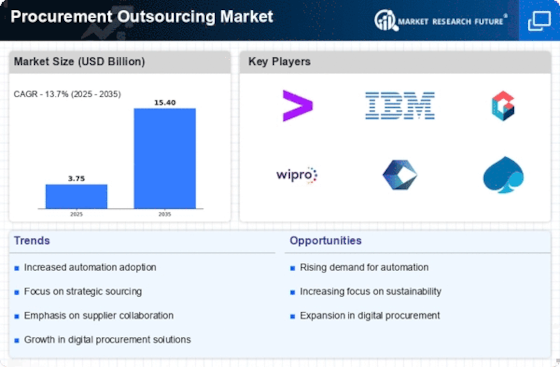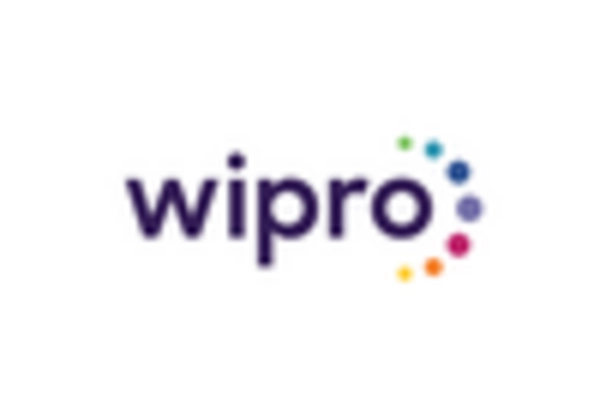Market Share
Procurement Outsourcing Market Share Analysis
The Procurement Outsourcing Market is experiencing notable trends that are shaping its landscape and influencing the strategies adopted by businesses globally. One prominent trend is the increasing adoption of digital technologies in procurement processes. As businesses strive for efficiency and cost-effectiveness, the integration of technologies such as artificial intelligence, robotic process automation, and data analytics into procurement outsourcing is gaining momentum. These technologies enhance the accuracy and speed of procurement activities, streamline workflows, and provide valuable insights for strategic decision-making.
Another significant trend is the rise of strategic partnerships and collaborations in the Procurement Outsourcing Market. Organizations are increasingly seeking comprehensive solutions from service providers that go beyond transactional procurement services. Strategic partnerships allow businesses to leverage the expertise of outsourcing vendors in optimizing their entire procurement function, including strategic sourcing, category management, and supplier relationship management. This trend reflects a shift from a transactional to a more strategic and collaborative approach in procurement outsourcing relationships.
The impact of the COVID-19 pandemic has also catalyzed certain trends in the Procurement Outsourcing Market. The need for agility and resilience in supply chains became evident during the disruptions caused by the pandemic. As a result, businesses are now placing greater emphasis on risk management, supply chain visibility, and diversification of suppliers. Procurement outsourcing providers are responding to these needs by offering services that enhance supply chain resilience, mitigate risks, and ensure continuity in the face of unforeseen challenges.
Additionally, sustainability and corporate social responsibility (CSR) have become integral considerations in procurement outsourcing. Businesses are recognizing the importance of environmentally and socially responsible procurement practices. Procurement outsourcing providers are aligning their services with sustainable procurement principles, helping organizations make ethical sourcing decisions, reduce their carbon footprint, and comply with evolving regulatory requirements related to sustainability.
The emergence of niche players and specialized procurement outsourcing services is another notable trend. While traditional procurement outsourcing covers a broad spectrum of procurement activities, specialized providers are focusing on niche areas such as direct materials sourcing, contingent workforce procurement, or specific industry verticals. This trend allows businesses to choose providers that align more closely with their unique procurement needs and industry requirements, fostering a more tailored and specialized approach to outsourcing.
Furthermore, the Procurement Outsourcing Market is witnessing a transition towards outcome-based pricing models. Traditional outsourcing models often relied on fixed-price or time-and-materials structures. However, businesses are increasingly seeking outcome-based pricing, where the cost of outsourcing services is tied to the achievement of specific performance outcomes and key performance indicators (KPIs). This shift incentivizes service providers to deliver tangible value and aligns their interests with the success of their clients' procurement operations.
Remote and globalized workforce trends are also influencing procurement outsourcing. The ability to tap into a global talent pool allows outsourcing providers to offer cost-effective services without compromising quality. Additionally, advancements in communication technologies facilitate seamless collaboration between clients and outsourcing teams regardless of geographical distances. This trend enables businesses to access a diverse range of skills and expertise for their procurement needs, contributing to the global nature of the Procurement Outsourcing Market.


















Leave a Comment